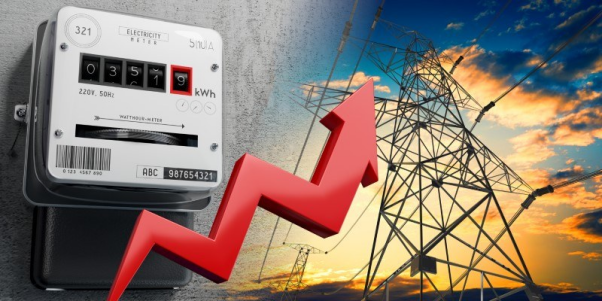Defensive Stocks for Uncertain Times Utility and Consumer Staples
Investors often seek safe havens for their portfolios during market volatility. Defensive stocks, particularly those in the utility and consumer staples sectors, offer some protection from the unpredictability of economic downturns. These stocks are known for their stability, even when broader markets experience turbulence. Understanding the role of these stocks can help investors weather uncertain financial climates.
Understanding Defensive Stocks In Volatile Markets
Defensive stocks are characterized by their ability to maintain steady performance regardless of broader economic conditions. Unlike growth stocks, which are tied to economic cycles and tend to fluctuate with the market, defensive stocks offer consistency. These stocks belong to sectors that provide essential services or products people need, regardless of economic health. This stability makes them particularly appealing during periods of financial uncertainty, such as recessions or market corrections.
Two key sectors that fall under defensive stocks are utilities and consumer staples. These industries are essential because they provide basic services and goods that consumers cannot quickly reduce, even during economic hardship. Let’s dive into why these sectors are critical to defensive investment strategies.

Why Utility Stocks Are A Safe Bet During Economic Downturns
Utility stocks are stable during economic downturns. They provide essential services with consistent demand, reliable revenue, and less volatility, offering investors security and dependable dividends in unpredictable markets.
The Essential Nature Of Utility Services
Utility companies provide services fundamental to daily life, such as electricity, water, and natural gas. These services are essential and non-discretionary—meaning that consumers must continue using them, no matter the state of the economy. This consistent demand ensures utility companies have a stable revenue stream, even during economic downturns.
For example, even during recessions, individuals and businesses still need electricity to power their homes and operations. Governments also regulate utility pricing to prevent steep cost increases, adding a layer of stability to the sector.
Revenue Stability And Dividends
Utility companies often benefit from long-term contracts and regulated pricing, making their earnings relatively predictable. This predictability extends to their stock performance, making them less volatile than other sectors. Because of their steady cash flow, utilities are also known for offering reliable dividends to investors. These dividends provide an income stream that can help offset market losses in other parts of an investor’s portfolio.
Low Correlation With Economic Cycles
Utility stocks typically have a low correlation with broader economic trends, meaning the economy's ups and downs influence their performance. Investors turn to utilities as a hedge during times of uncertainty, seeking a stable return on investment when other sectors may be struggling.

The Role Of Consumer Staples In Weathering Market Uncertainty
Consumer staples, such as food and household items, maintain steady demand regardless of economic conditions. They provide stability and consistent returns, making them resilient investments during market volatility.
What Are Consumer Staples?
Consumer staples refer to products that people buy regularly and need for their everyday lives. These include food, beverages, household goods, and personal care products. The companies that produce and distribute these items are part of the consumer staples sector, and their stocks are considered defensive due to the steady demand for their products.
During economic downturns, consumers may cut back on luxury items or delay large purchases, but they are unlikely to reduce their spending on necessities. This continuous demand helps consumer staples companies maintain consistent revenues, even when other sectors experience slumps.
Pricing Power And Brand Loyalty
Many companies in the consumer staples sector have significant pricing power. Established brands with loyal customer bases often can pass on rising costs to consumers without losing demand. Maintaining profit margins makes consumer staples companies resilient in challenging economic environments.
Global Reach And Market Diversification
Another reason consumer staples stocks are considered defensive is their global reach. Many of the largest consumer staples companies operate on an international scale, which diversifies their revenue streams. If one market experiences economic difficulties, these companies can often rely on stronger performances in other regions to balance their overall financial performance. This geographic diversification provides an additional buffer during times of market uncertainty.

Balancing A Defensive Portfolio: How To Combine Utility And Consumer Staples Stocks
A defensive portfolio blending utility and consumer staples stocks offers stability and resilience during market volatility, providing consistent income and reliable demand for essential goods and services.
Diversification Across Sectors
Combining utility and consumer staples stocks in a defensive portfolio balances risk. Utilities provide stable dividends and low volatility, while consumer staples offer consistent demand and growth potential. Diversifying across these sectors helps protect the portfolio, as one can offset challenges the other faces, ensuring more excellent stability.

The Importance Of Dividend Yield
Utility and consumer staples stocks are valued for dividends, offering income and inflation protection in defensive strategies. Regular dividends provide cash flow during market uncertainty, reducing the need to sell stocks at a loss. When selecting these stocks, investors should consider dividend yield, payout ratio, and a company's history of maintaining or growing dividends over time.
Rebalancing And Monitoring Market Conditions
Even with a defensive portfolio, it's important to periodically rebalance and review stock performance. While utility and consumer staples stocks are generally stable, individual companies can still face risks such as regulatory changes, supply chain disruptions, or shifts in consumer behaviour. Keeping track of these factors helps ensure your portfolio aligns with your risk tolerance and long-term financial objectives.
Investors should also stay informed about broader economic conditions and make adjustments as needed. For example, if interest rates rise, utility stocks might face increased costs due to the higher cost of borrowing. In contrast, consumer staples stocks may benefit from stable consumer demand, making them more attractive during such times.

Conclusion
Defensive stocks, particularly those in the utility and consumer staples sectors, offer investors a reliable way to protect their portfolios during uncertain economic times. Utility stocks provide stability through essential services and dividends, while consumer staples offer consistent demand and pricing power. By combining these sectors in a balanced portfolio, investors can confidently mitigate risks and navigate market volatility.
Understanding how these stocks perform in various market conditions is critical to creating a well-rounded investment strategy. Though no stock is immune to economic downturns, defensive stocks offer excellent protection and help investors weather financial storms more effectively.

